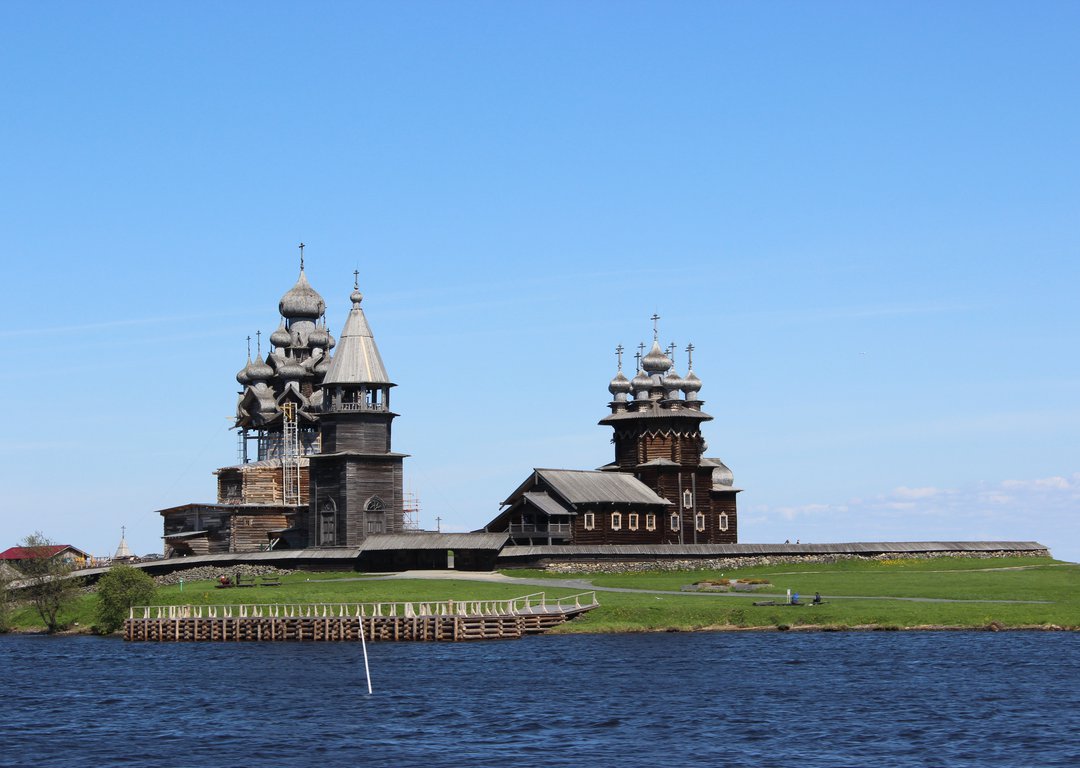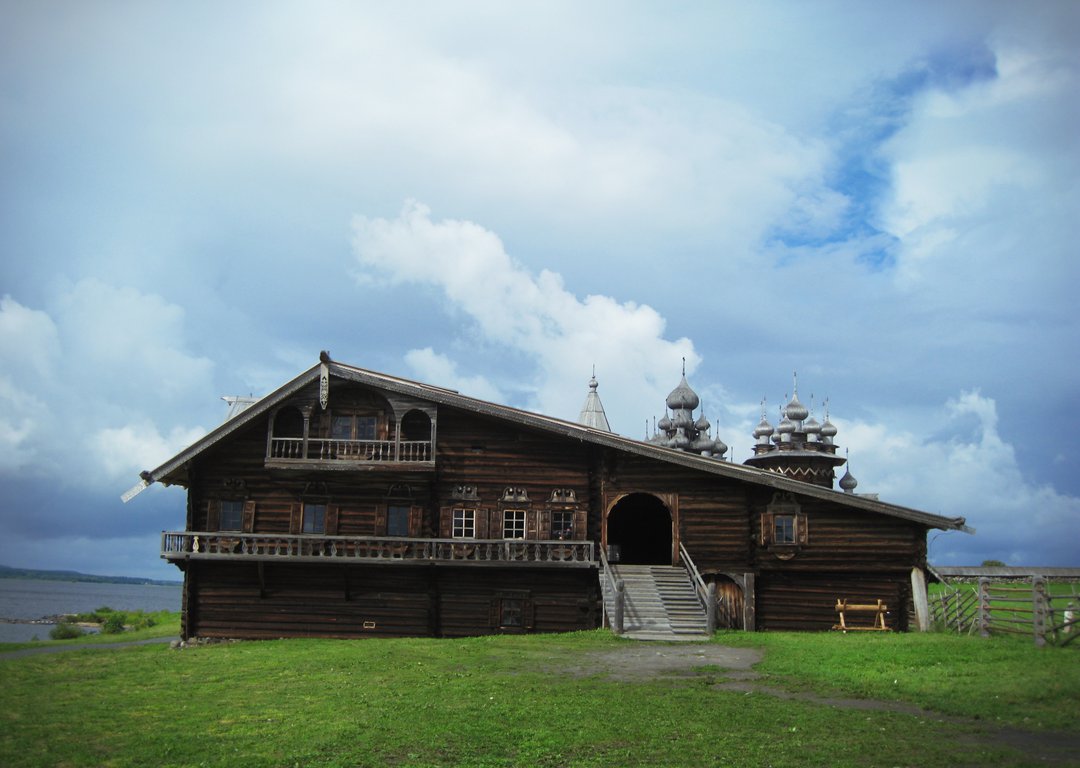 KIZHI
KIZHIKareliya is the region, that must be seen to be believed, it spans all the way from St. Petersburg to the Arctic Circle, a vast wilderness of forest and water. Lake Onega is fed by 58 rivers and home to 1,369 islands, including our stop Kizhi with its quaint collection of ancient wooden houses and windmills, including the famous and remarkable Transfiguration church, built in 1714 without a single nail being used.
 KIZHI
KIZHISettlements and churches on the island were known from at least the 15th century. The population was rural but was forced by the government to assist the development of the ore mining and iron plants in the area that resulted in a major Kizhi Uprising in 1769–1771. Most villages had disappeared from the island by the 1950s and now only a small rural settlement remains. In the 18th century, two major churches and a bell tower were built on the island, which are now known as Kizhi Pogost. In the 1950s, dozens of historical wooden buildings were moved to the island from various parts of Karelia for preservation purposes. Nowadays, the entire island and the nearby area form a national open-air museum with more than 80 historical wooden structures. The most famous is the Kizhi Pogost, which is a UNESCO World Heritage site.